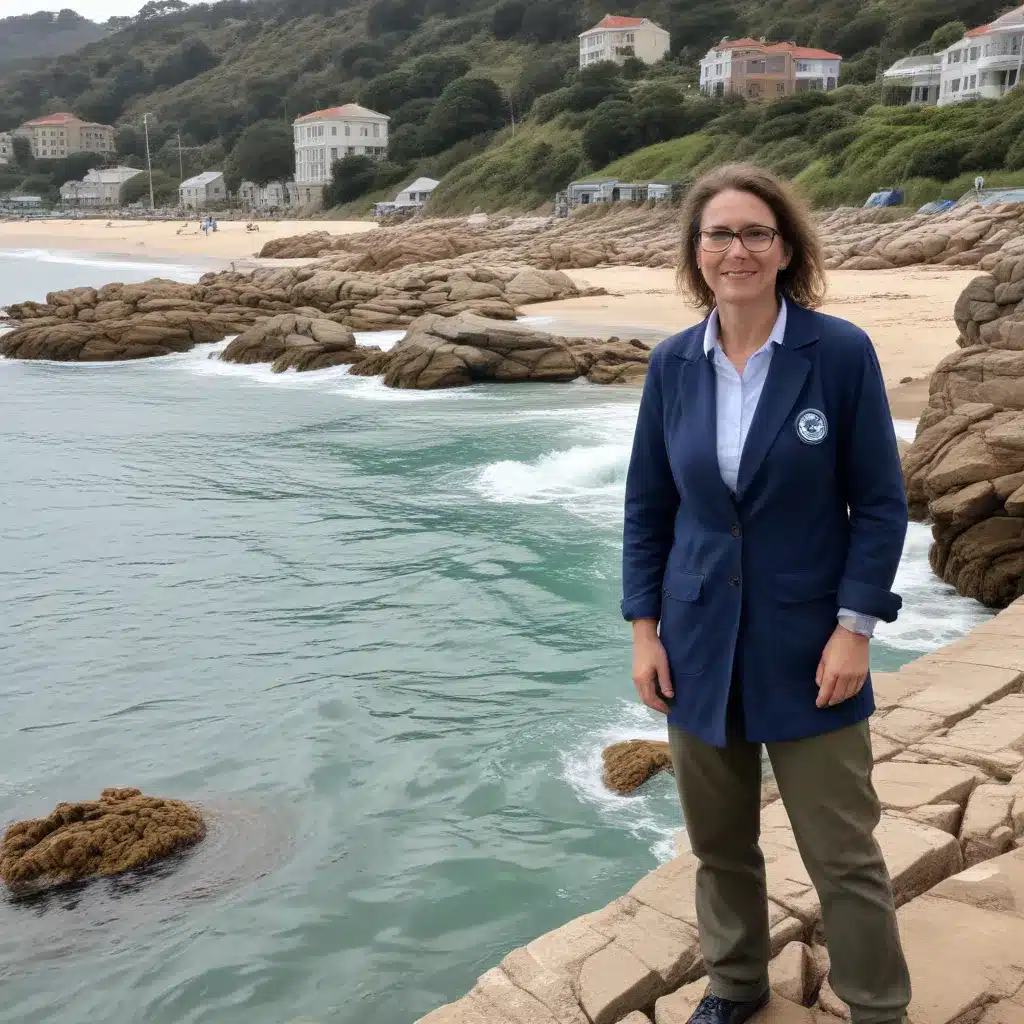
Pioneering Efforts to Understand Ocean Dynamics and Implications for Coastal Communities
University of Cape Town (UCT) Associate Professor Sarah Fawcett is at the forefront of groundbreaking research that aims to shed light on the complex relationship between ocean systems, climate change, and human health. As the lead researcher on a prestigious $45 million project funded by the Ocean Biogeochemistry Virtual Institute (OBVI), Fawcett and her team are tackling critical gaps in our understanding of ocean dynamics and their far-reaching implications.
Fawcett, who is based in UCT’s Department of Oceanography and the Marine and Antarctic Research Centre for Innovation and Sustainability (UCT-MARiS), will spearhead an effort to investigate oxygen and biogeochemical dynamics along the west African margin. This region, which stretches from the tip of South Africa to the equator, is characterized by diverse ecosystems with varying oxygen conditions and productivity levels, making it a prime area for Fawcett’s research.
Unraveling the Mysteries of Ocean Oxygenation and Productivity
The project’s primary focus is to deepen our fundamental understanding of the physical, chemical, biological, and geological processes that govern carbon cycling and storage in the ocean. Fawcett explains, “The ocean plays a profound role in regulating Earth’s climate and acts as a vast repository for carbon and heat. Yet, we lack a deeper mechanistic understanding of how these complex relationships work.”
Fawcett and her team will seek to identify the organizing principles underlying the oxygen dynamics of the west African margin, with the goal of developing predictive models that can simulate the ocean’s response to predicted climate changes. This knowledge will be crucial in supporting the development of effective mitigation strategies.
“Ocean oxygenation and productivity are particularly consequential for ocean biota and human welfare,” Fawcett emphasizes. “Their future is highly uncertain, particularly for tropical waters and coastal upwelling systems like those that occur on the west African margin.”
Addressing the Impacts on Vulnerable Coastal Communities
Climate models suggest that hypoxic zones (low-oxygen waters) will expand in response to global warming, while the extent of suboxia (extremely low-oxygen waters) may decline. These changes in ocean oxygenation will have profound implications for the coastal zones, where local communities depend heavily on ecosystem services.
“The coastal zones will be strongly affected by changes in oxygenation in neighboring offshore waters, changes in local physical and biogeochemical processes, and by the increasing supply of human-derived nutrients that enhance biological production and drive local and regional deoxygenation,” Fawcett explains. “Poorer communities whose livelihoods depend largely on coastal ecosystem services will be most vulnerable to this uncertain future.”
By coupling measurements and modeling, Fawcett’s research aims to determine the interconnected controls on oxygen and productivity along the west African margin. This knowledge will shed light on the biogeochemical and ecosystem-level implications of changes in these critical parameters, ultimately informing strategies to support the resilience of coastal communities.
Fostering a Global Research Network for Ocean Solutions
Fawcett’s project is one of five global initiatives selected to join the OBVI, a collaborative effort that brings together 60 scientists from 11 countries to advance our understanding of ocean chemistry and the resilience of marine ecosystems in a rapidly warming world.
Through this research network, the teams will receive financial support, access to the Schmidt Ocean Institute’s research vessel, and expert assistance in collecting and analyzing large amounts of oceanographic data. This collaborative approach will enable the development of accurate models at various scales, which can then be used to inform the design of mitigation strategies and support decision-making processes.
“We seek to identify the organizing principles underlying the margin’s oxygen dynamics to develop predictive capacity for the region – with regard to oxygen and productivity, and to the biogeochemical and ecosystem-level implications of changes in these parameters,” Fawcett states.
Empowering Coastal Communities through Inclusive Governance
The importance of Fawcett’s research extends beyond the scientific community, as it has direct implications for the well-being of coastal communities. Recognizing this, the project team includes not only fellow UCT colleagues but also researchers from the Council for Scientific and Industrial Research, Princeton University, Stellenbosch University, and the Namibian Ministry of Fisheries and Marine Resources.
This interdisciplinary approach reflects a growing recognition that effective ocean governance requires the active participation of diverse stakeholders, including local communities, policymakers, and industry representatives. As Dr. Philile Mbatha, a lecturer in the Department of Environmental & Geographical Science at UCT, notes, “If we are to move towards a more sustainable approach to ocean governance, we need governance approaches that are co-produced by all relevant actors.”
Mbatha, who contributed to a recent paper published in Nature Communications on the transition to sustainable ocean governance, emphasizes the importance of empowering people who depend on the ocean commons through knowledge sharing and conferring rights to the ocean as a public good.
“We need governance approaches that are not only environmentally or economically viable, but ones that are also socially just and inclusive – where power is evenly distributed in governance processes and practice,” Mbatha explains.
Bridging Research and Practice for Transformative Change
The insights gained from Fawcett’s research, combined with Mbatha’s expertise in coastal resource governance, have the potential to drive transformative change in the way we approach ocean stewardship and support the resilience of coastal communities.
By fostering collaboration across disciplines and sectors, the research team is well-positioned to translate scientific findings into practical solutions that address the complex challenges facing the world’s oceans and the people who depend on them.
As Fawcett concludes, “The ocean plays a profound role in regulating Earth’s climate and acts as a vast repository for carbon and heat. We have much to learn about the connections between carbon and other elemental cycles, and the specific roles that marine life plays in shaping those relationships. This research will be crucial in informing strategies to secure a sustainable future for our planet and its people.”


